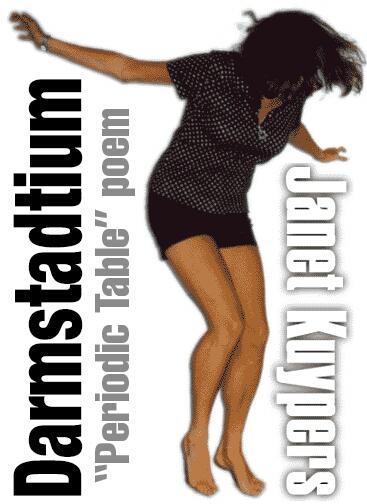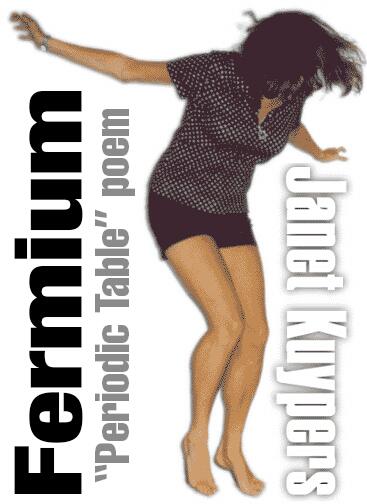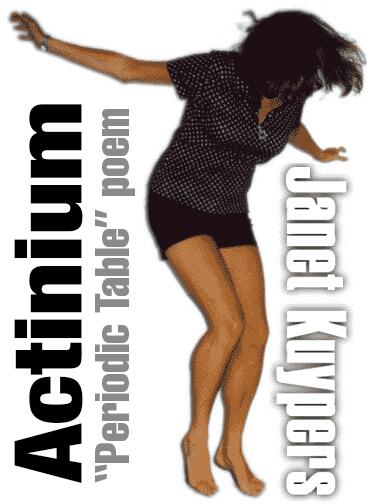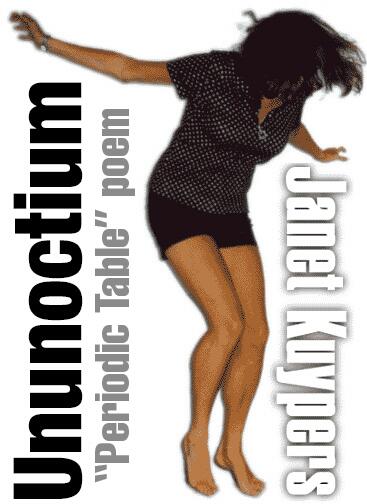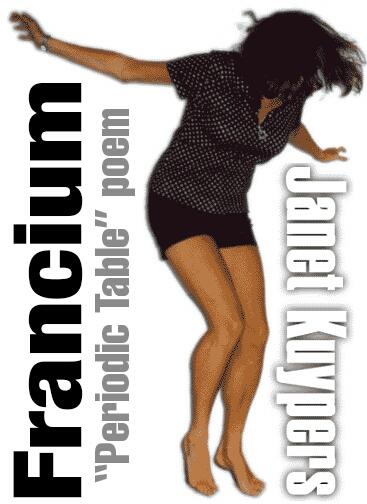Curium
Janet Kuypers
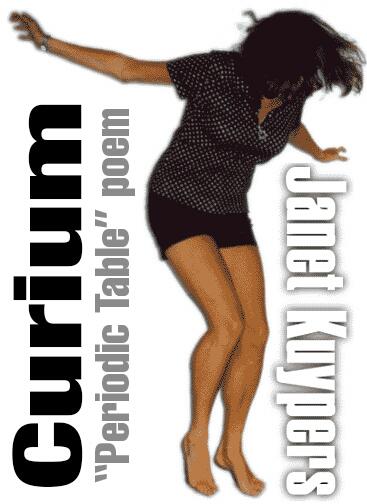
from the “Periodic Table of Poetry” series (#96, Cm)
10/23/13
Searching through storage
for my wedding clothes,
I ignored my white wedding dress
and reached for the wedding veil.
It might not be true
to my Halloween costume,
but I had to wear something
to show that my black long-sleeved dress
was actually a wedding dress.
I’ll carry a small bunch
of white flowers
to make what otherwise
seems like a “goth wedding”
look complete, but still,
I’ll have to explain
that my Halloween costume
is my interpretation
of Marie Curie
on her wedding day.
I mean, I had to wear this
for my Halloween costume,
I mean, I’m writing poetry
for every element
in the Periodic Table,
and I know that Marie Curie
discovered a few of these
elements herself, and one
was even named after her.
And maybe it’s wasn’t goth,
but a diligent work ethic
that caused Marie Curie
on her own wedding day
to wear a black dress —
so she could wear the same
black dress later for her work.
And yeah, when she worked
she was getting messy with her
radioactive elements
(ergo the black dress, I suppose),
but when she studied
the radioactivity
of some elements
seeming higher at times,
she deduced that there
must be something else
causing the radiation.
And there was;
she even coined the
term “radioactivity,’
while she discovered
the two radioactive elements
radium and polonium.
But looking back on her life,
maybe wearing the black
dress was appropriate,
because she soared
in all the schooling
she could legally take
(at the time, she couldn’t
enroll in a higher education
because she was female) —
so she eventually had
to go underground learning
for higher education
in makeshift classrooms
that lasted only a few days
before a government raid
would cause the “schooling”
to have to move again.
She then left Poland for Paris,
was able to go to school,
but was still penniless and hungry.
But after her second degree,
she met her Pierre,
who worked with her
even after their marriage
(where they gave each other
bicycles as wedding gifts).
I know, I know, I’m going
on and on about Marie Curie
for my Halloween costume,
and there’s even an element
named after her, but she
didn’t discover that element,
so does Curium have any
relationship to Marie Curie?
Well, other than the fact
that Curium’s radioactive
(Curium is actually one of the
most radioactive elements),
Curium is now used to help
scientists learn and discover,
much the way Marie Curie did.
Curium helps people, to help
power artificial pacemakers.
But it’s even used in alpha-particle
X-ray spectrometers that are
installed on lunar and Mars rovers
like the Sojourner or the
Spirit and Opportunity rovers.
It’s even used on a spacecraft
to probe the surface of a comet.
Hmmm… Because it’s radioactive,
Curium is dangerous to us humans,
even though it really does have
a certain glow to it…
But it is nice to know that,
like Marie Curie,
we can use this element
to research and learn.
Besides, both being a goth girl
and loving to dive into my work
is really making me take a shine
to this black wedding dress idea…

